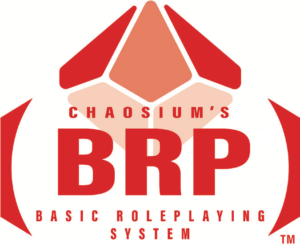Routine game actions in routine situations almost always succeed. As discussed prior, generally speaking, a character shouldn’t have to roll to determine if they drove successfully to work, or cooked a basic meal. However, when the action becomes dramatic or extraordinary, players and the gamemaster should roll dice for the resolution.
It is important to know whether characteristics and skills succeed when danger threatens, or if they fail miserably in the face of stress. Dice allow crises and decision points to be resolved without the constant intervention of the gamemaster.
Dice rolling is what turns Basic Roleplaying into a game system, not just a case of “Mother May I?” with the gamemaster taking the role of mother.
However, a gamemaster does not necessarily need to roll against themselves. If a non-player character is attempting to do something to another part of the environment, whether it’s lifting a rock, convincing another non-player character of something, or leaping a chasm, the gamemaster may always just decide what the result is instead of rolling, but can always roll for a random result if desired. This keeps the dice rolling to a minimum and focused on the players’ actions.

